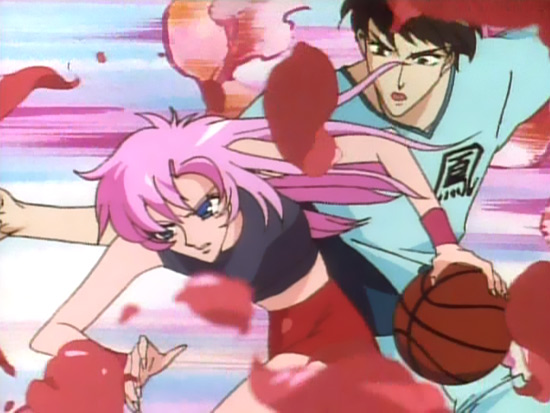07.21
Yes, I’ve looked through this current anime season. No, I wasn’t interested in blogging most of them. So in this case, it’s time to dig up an old show and light it anew. Utena has been argued over for over a decade and a half with little consensus on what the imagery symbolized or which characters were in the right, not helped by the creator’s refusal to answer any questions with a coherent response. This show stands alongside Evangelion, Lain, and Madoka as series that textbooks could be written about, with discussions that will often end in fights and resolutions without clarity. Could it be seen as full of psychological depth, the inane rantings of a madman who crossdresses as Sailor Mars, or something outside of either’s domain?
And I know this will paint me as a clod, but I did have the second stance in mind for a while. That’s the reason why I dropped the show a few years ago, and only took until now to start it again. Unlike other shows where any symbolism is only in the eye of the viewer, Utena shoves so much imagery and allusions inside a single episode. Since Ikuhara had a limited budget to work with, he had to turn that hindrance into a signature by overlaying bland animation scenes with ominous music and backgrounds with simplicity that questions rather than bores. He starts this trait off by placing the setting in a pure white school. The architecture brings to mind a lush kingdom, but the lack of color presents dormancy throughout the territory. We get a silent empire, under the watchful eye of the student council but never as vast as they look. Even in the beginning, Ikuhara creates a sense of alienation to the cast. While some scenes play off as antics from any other school show, they only add up to create an eldritch atmosphere.
Perhaps the premiere can work as a challenge to the director’s previous work with Sailor Moon. Instead of fighting monsters or using silver crystals to save the day, Utena has to fight domestic abusers with a wooden sword. After portraying a ditzy girl who saves the day with the rest of her friends, Ikuhara presents a lone young woman with charm and ambition to back up her actions. However, this world that presents broken romances and inverted fairy tales does not welcome her character. She aims to be a prince instead of what women are expected to be. Utena can play basketball, outsmart the teacher, and become a chick-magnet just like any ace of a guy could.
Looking further, there are many sports and exercise allusions in this episode. Utena challenges Saionji while he’s practicing kendo. The Kashira girls are doing squats when discussing the duel. The aforementioned basketball. It’s a bit interesting to go with the Phys Ed references for the first episode, noting how a girl like Utena could excel at sports that boys like Saionji are supposedly champions at. Yes, any run-of-the-mill “girl power” work of fiction can do that with the flick of the wrist. But those works never question why a strong woman should just be as good as the men rather than better. Does being as good as fellow men satisfy the ideals that reside within the feminist doctrine, or is that a low expectation we as a society have grown accustomed to through fiction’s osmosis?
